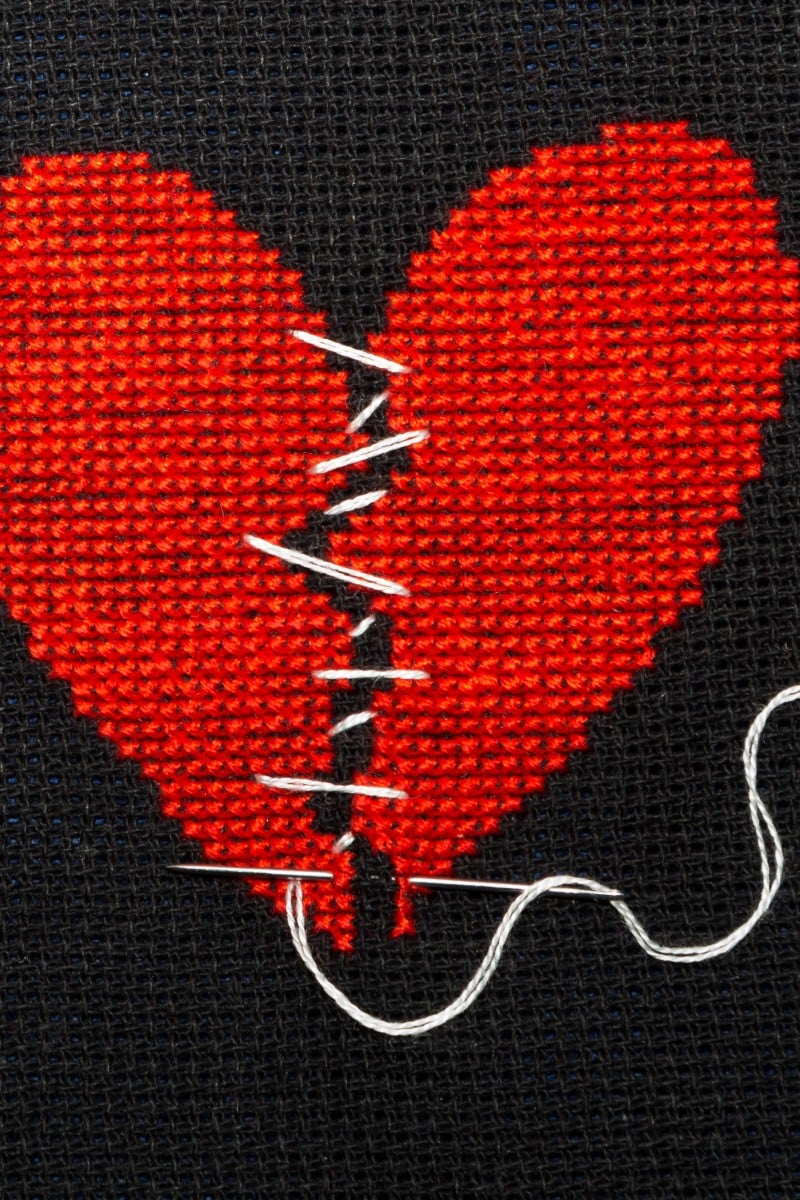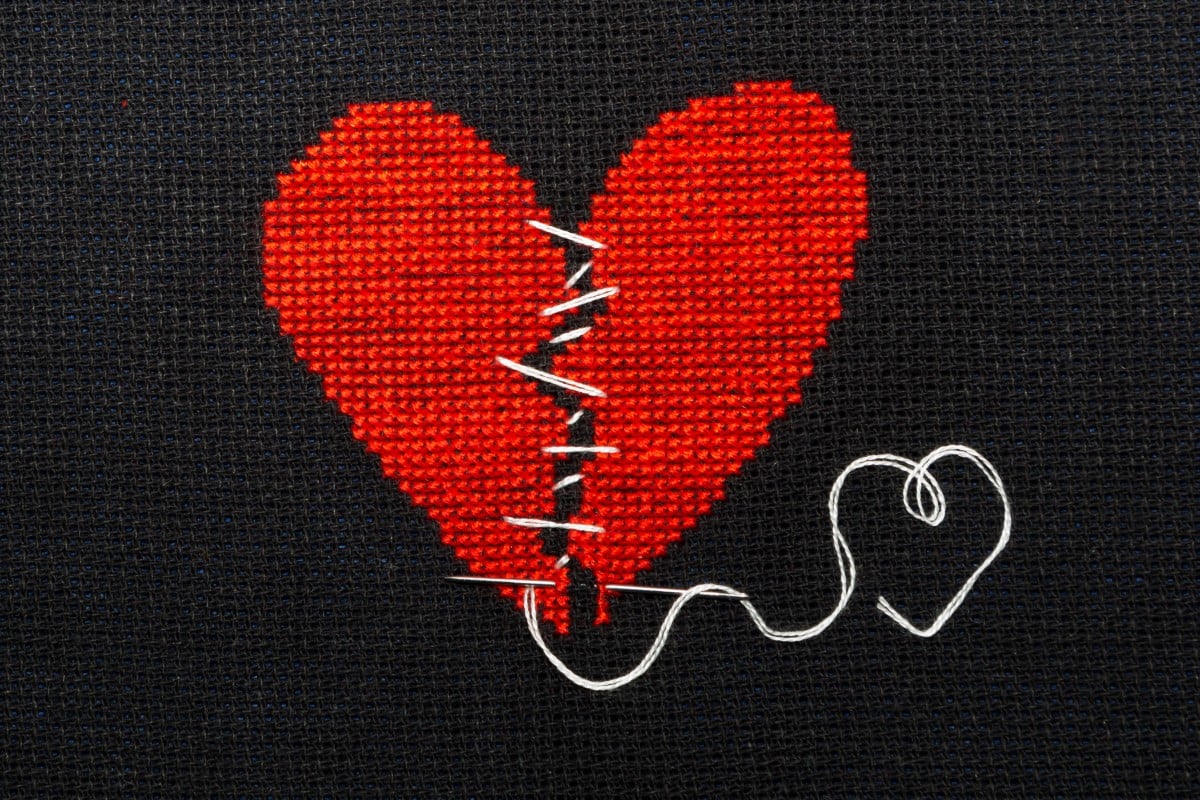
Growing Pains: Grief and loss cause mental wounds that no one sees, but with time and support, they too will heal
Not everyone appreciates that these invisible, emotional injuries need to recover, just like their physical counterparts do

Grief and Loss
If you’ve ever broken a bone, grazed your knee, or accidentally burned yourself while cooking, you will know that the wound or break doesn’t fix itself immediately. For this to happen, you need tools, time, and the right kind of support.
In the case of a graze, you probably don’t want to bleed all over the place, and so you might choose to put a plaster over the wound (tool). You would know that shortly the blood will coagulate and stop pouring, then a scab will form (time). If the scar from the graze bothers you, you might seek out some advice from a skin expert, to see if anything could be done about it (support).
Presumably none of the above is news to you, and you’ve known about it since you were in primary school. We often have some kind of an idea what to do with physical wounds. Damage which we can see, that others can also observe and respond to, tends to be handled sensitively and with care.
So what happens when the damage is not so easily visible? How about those times when we are emotionally injured?
One significant way we can be emotionally injured is through loss. For example, loss through the death of a loved one (a person or a pet); loss through the ending of a friendship or relationship; and loss through change (such as moving home or school, and so losing our sense of security).
The grief which follows any kind of loss we encounter can be likened to a wound; and yet the ways to heal this type of wound are not always as talked about in the same way as the physical kind. Often, people (of all ages) may feel that they should just get on with life, or get over it. Some may feel that if they allow themselves to feel their emotions, they won’t be able to function, and it will take them longer to recover.
However, research has shown overwhelmingly that blocking emotions is more likely to lead to more problems, including depression, eating disorders and anger-management issues. Clearly, more needs to be understood about how to deal with loss, and how to help heal emotional wounds.
Case study
Rahul*, 13, was getting into a lot of trouble with his teachers when I first spoke to him. He was regularly getting detentions, and hated being at school. The more we spoke, the more Rahul opened up and expressed how he was feeling. He was holding on to a lot of anger, which was directed at people around him, sometimes at himself, and quite often towards me.
Things weren’t always this way, Rahul said. Before, life didn’t “get to” him quite like it did now. I asked how things used to be, and what happened when he first started to feel angry. There were several factors involved, but perhaps the event that had the biggest impact on Rahul, he felt, was the death of his uncle three years ago.
“But that was ages ago,” Rahul added when he first brought up his uncle’s death. He didn’t think his current anger could have anything to do with his past grief, as others in his family had mourned and then got on with life.
Grief affects different people in many different ways, and at different times. It’s important to not compare yourself to others if you are experiencing loss, and it’s also very helpful to be aware that just as with physical wounds, emotional wounds need tending to in order to heal.
1 Understand grief
You may have heard of the “Seven stages of grief” model. This theory suggests people move through stages of shock or disbelief; denial; anger; bargaining; guilt; depression; and finally acceptance and hope.
As helpful as this model can be, it’s important to know that it is not meant for everyone, and not every person will necessarily experience each of these stages. Equally, a person may be very “textbook” and go through each of the stages in exactly the order they might expect and finally reach acceptance and hope, only to jump back to disbelief or another emotion they have already experienced.
One way to look at these stages in a more helpful and less rigid way might be to liken the different emotional experiences to waves in the ocean, rather than a rung on a ladder you are climbing. Rahul could easily relate to the idea of waves moving him up and down and even side to side, and having little control over how he was affected by each wave.
Accepting that no two people experience grief in the same way was an important lesson for Rahul, and allowed him to let go of ideas that he should be feeling or reacting in a certain way.
2 Accept what you’re feeling
Society can place some strange expectations on us, and these can sometimes be quite unhelpful. Rahul had a deep-set belief that boys and men should not express their feelings, whether publicly or even to themselves, because to do so would mean appearing “weak”.
These kinds of beliefs can be damaging, and very counter-productive when trying to heal. Research has shown that attempts to suppress emotions actually heighten anxiety, making life harder to cope with. As an example, if I were to ask you to not think about a white fluffy rabbit, what do you find yourself thinking about?
Letter to the editor: Don't keep depression to yourself
Instead of trying to bury feelings, see if you can acknowledge them. Accepting all of your feelings – whether good or bad – is an important step in the recovery process, and requires great strength and resolve (For more on this, see “Don’t let your thoughts rule your mood or life”).
3 Challenge thoughts
Once you have accepted all the feelings you may be experiencing, it might be useful to challenge some of your thoughts. This is not the same as dismissing them or burying them, but is about putting things in perspective.
For Rahul, a thought we challenged together was guilt. Rahul explained that he felt a great deal of guilt for not having spent enough time with his uncle when he was still alive, and now regretted all the missed opportunities.
Firstly, we challenged the logic of his thinking. Although Rahul wished he had spent more time with his uncle when he was still alive, at the time Rahul was changing schools and living in a different country from his uncle. Rahul realised that although he would have liked to spend more time with his uncle, a lot had been out of his control. He also started to recognise that although he may not have spent many hours with his uncle, the quality of the time spent together was high.
Finally, Rahul considered what his uncle might say to him if he knew how guilty he was feeling. Rahul was sure his uncle would encourage him to focus on the good times they had together, and tell him to focus on living well in the present instead of regretting the past. Although his uncle couldn’t say any of this directly, Rahul felt he knew his uncle well enough to accurately guess what his advice might be.
4 Treasure memories
While it may be tempting to do everything you can to put the past away in an effort to move forward, sometimes it can be helpful to remember what you have lost.
Rahul had been trying to ignore thoughts of his uncle, in the hope this would help him move past his grief. This had so far not helped, and so instead he thought about how he might like to celebrate his uncle’s life. Rahul decided to create a memory box. He asked his mum for old birthday cards his uncle had sent him, and printed out old emails and photos that they had sent each other. He started talking with his mum about her brother, and at times he even found himself laughing at funny memories of his uncle.
5 Talk to someone
As with a physical wound, some emotional wounds need extra support to heal. For some people, this might involve journalling and expressing themselves on paper, rather than speaking out loud to another person.
For others, like Rahul, they may seek out family members or professionals for support. Your school may have a counsellor you might like to talk to, or you could contact the Comfort Care Concern Group or an independent therapist (See box for details). As well as professionals, family, friends and adults such as youth leaders might be helpful sources of support.
Rahul’s grief did not disappear, and he did not stop missing his uncle. However, in facing his feelings, allowing himself to experience emotion and in seeking help, he finally started to heal.
*name has been changed
Resources:
- The Comfort Care Concern Group (CCCG) is a Hong Kong organisation which offers individual and group counselling for people experiencing bereavement (www.cccg.org.hk).
- St John’s Cathedral Counselling Service offers grief counselling in several languages, and has counsellors trained to address teen issues (www.sjcshk.com).
- Contact the HK Division of Counselling Psychology to find more information on registered professionals (www.dcop.hkps.org.hk).
- Resource, The Counselling Centre is a charitable organisation based in Central, offering affordable counselling (www.resourcecounselling.org).
